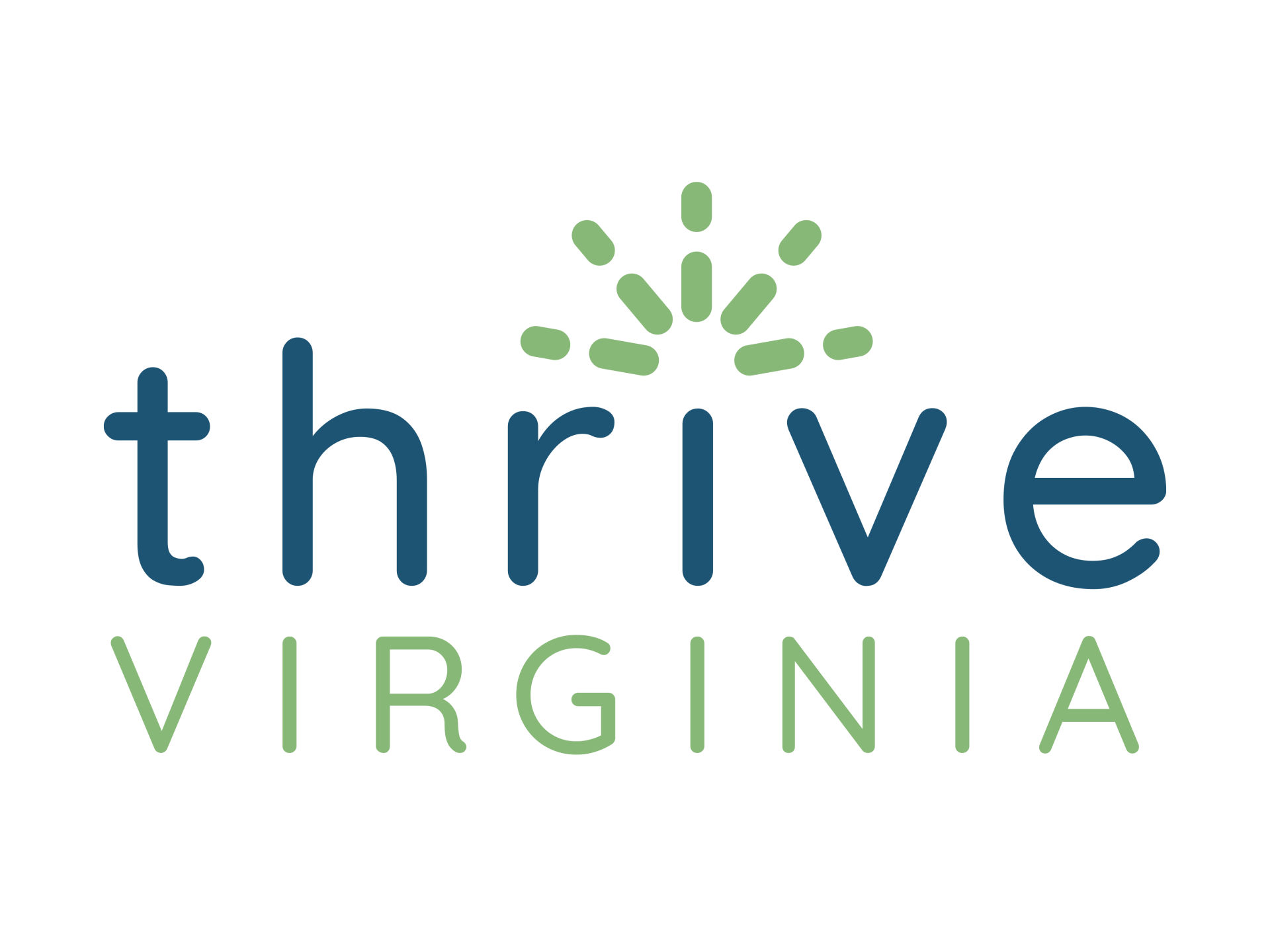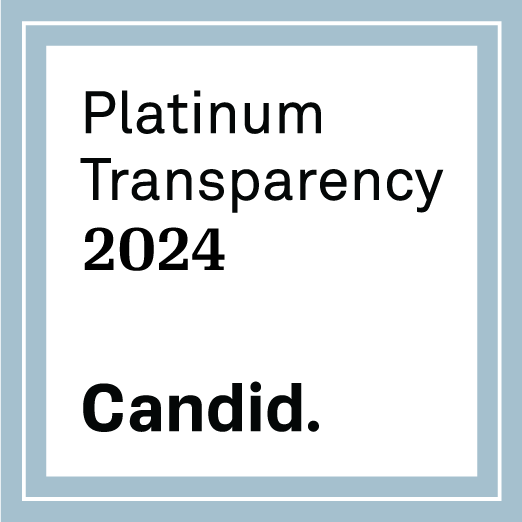Blog
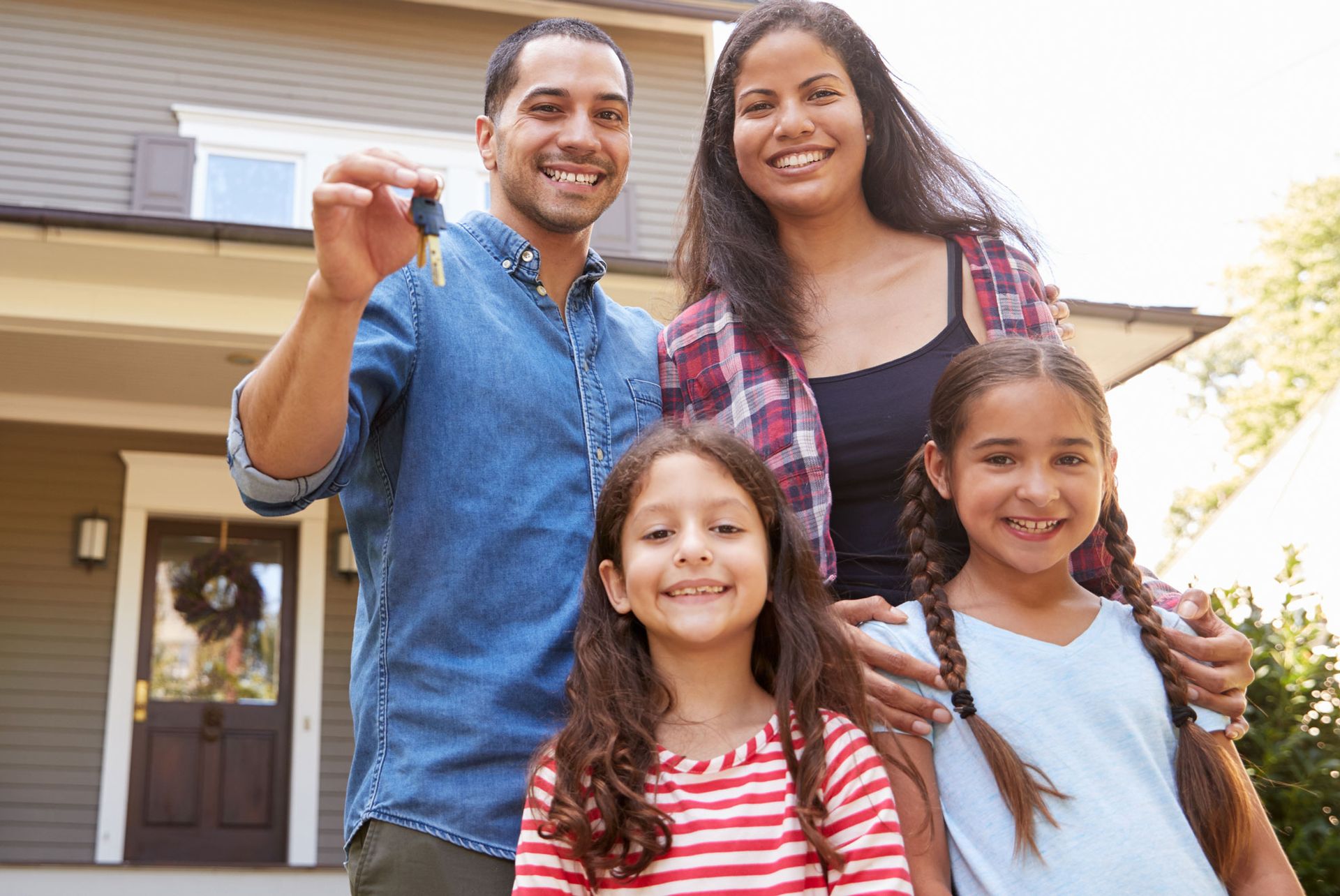
June 26, 2023
An interview with Liz Brown, Thrive Virginia Family Specialist Can you talk about the lack of affordable housing and transportation in Virginia and what impact it is having on families? “It's been something that's a constant struggle for all of my families, and it's incredibly difficult as their resource specialist to feel like there are no resources at times” Many times, with housing, our participants have to have a certain credit score, they have to have a certain down payment or monthly payment and it makes it so hard for the families to even plan ahead. Transportation is a huge issue for families in the Thrive Virginia service area. Many families don’t have a vehicle of their own or they are truly unable to care for the vehicles and get them fixed up. Relying on public transportation is not feasible, so many families struggle with employment, making money and affording a home. It’s a very difficult situation that seems to be an ongoing conversation. As far as the cost of buying a house, renting a house seems like it's doubled, if not quadrupled even in the last 10 years. Are you seeing more families because of that? The ability to afford adequate housing is something Thrive Virginia sees frequently. Rent has skyrocketed. “I just had a family the other day. Her rent went from 1100 to 1600. Literally in a day...what are families supposed to do? There's just less and less options for families and it is scary and it's really hard when families are doing everything they can or they're supposed to, but the options just aren't there.” What resources does Thrive Virginia offer to help with affordable housing? Thrive Virginia has a HUD counselor. She assists with housing and finance classes, as well as an economic empowerment director who helps with budgeting finance classes, as well as, setting up a bank account, setting up savings, credit restoration, etc. “Virginia Career Works has been incredibly helpful. We've asked them for assistance with credit restoration. They also help with paying for people to go to work, get their CDL license and things like that.” With the families that you are working with, what are some of the mental health benefits that come with being involved in Thrive Virginia? Thrive Virginia provides resources for housing or food pantries and also helps participants with mental health counseling resources. Liz states that one of the many benefits of working with participants is that there is a consistent person in their lives to assist with any questions or needs. “with Thrive, you have someone to motivate and encourage you, someone to tell you that your progress is being seen. That everything they do there is someone to cheer them on or motivate them or encourage them.” Tell us a little bit about the philosophy of helping yourself first so that you can help others. Like many, Liz struggles with putting herself first, but knows she needs to take care of her needs before she is able to help anyone else. Liz’s supervisor also understands the importance of self care. She is constantly encouraging Liz to take a break, a mental health walk, self care, a breather in between. “I was told you can't pour from an empty cup which I have tried to do my whole life with people. And you always hit rock bottom. You always find out real quick it's not gonna work…” Can you share some stories with us about some of the families that you have helped in your time at Thrive? “I had a family who was struggling with depression. She had three kids. She's a single mom and she's currently working at the same position she's had for a long time, and she's been wanting to do something more. She wanted to take a leap and go into pharmacy work and explore that and get higher pay. But she didn't have a resume and she was never shown how to make one, and she didn't understand where to begin.” Liz was able to help her participant realize skills that she already had. From being good at speaking with people to working a cash register, she was able to add excellent communicator, active listener and money handling skills to her resume. “ That's a big part of working with these families. I love to empower them and let them see that they can do it.” A second story Liz recalls is one that applies to many of her families- helping them open savings accounts. Even if it's 10, 15, 20 $5 in their savings account, Liz encourages her families to do it. “starting it is the first step and most important step for their financial freedom.” Liz’s favorite story involves a mom with 2 kids. She is not only homeless, but has no transportation whatsoever. She and her partner continue to struggle to make ends meet. “She let me know just the other day, her boyfriend got a new job, , better paying job that offers a work vehicle. So, she just killed two birds with one stone. You could tell in her voice when she told me how thrilled she was.” That's why I love this work. When your families share a success story, it's just the best feeling in the world. “ Call area code 804-362-6835 to make a donation or learn more. Thrive VA's 24 hour confidential hotline is 877-966-HELP To donate to Thrive Virginia, please click here

June 9, 2023
An interview with Lynette Diaz, a Certified Bridges out of Poverty Trainer who currently serves as the Director of Economic Empowerment for Thrive Virginia. Can you explain a little bit more about what economic empowerment is? There are the traditional elements that I think most people think of when they think of economic empowerment. In that we're looking at how we empower individuals to be financially literate or financially capable, and how to understand income, spending and saving, understanding credit scores, understanding how to navigate systems like housing and also employment. We also, though, are looking at it from a community level perspective, thinking about the localities that we serve at Thrive and how they are unique in their own economic opportunities, and what the availability of employment options are and what the living wage options are for families. There are also things to consider like transportation and broadband internet. Essentially, all of the resources that one would need in order to navigate employment and managing one's own household. “So there's many different elements to it, but at the core of it, it's really to empower individuals to have financial capacity” Since you started with Thrive Virginia, there has been some shifting on the direction of the focus when it comes to the topic of Economic Empowerment. Tell us more about that. We're right at the time now where we're thinking about how economic empowerment impacts families altogether. We have a HUD certified counselor on staff, and we have hired a family resource center coordinator for our new family resource center that we're opening in King and Queen County. I oversee the HUD grants, the grant funding from the United Way, and now the Family Resource Center funding that we're receiving from Families Forward Virginia. We sort of did a repositioning of our theories about economic empowerment, and we've been looking at not just what we're providing to individuals, but what we're doing on a community level. Financial struggles have been linked to health issues, divorce and even violence. It really does seem to be the root cause of many things. How do you see the process of transitioning from one of financial instability to a healthier, more stable financial situation where families truly can Thrive? There's an upstream vision that I know I'm seeing in the different sectors I've worked in. It starts with really looking at what economic stability actually means. It's complicated and it's complex; and it depends on a lot of things. It depends on how you grew up, your knowledge of finances and what sort of influences you had in terms of your values and how you see money. It’s also how you see yourself in terms of your role as a citizen in a community and how you navigate those resources. It can be a very emotional thing. “We’re looking at it from a perspective that if families are socially connected to positive influences and develop and learn their own financial capability, then families are going to be healthier” Traditionally, there has been a tendency to look at just one element of a family when assessing need. But Thrive Virginia is focused now on something called The Two Gen Approach. Tell us about that. Historically, an example of how we were doing it would be in just looking at what is going on with the children in a family. So, maybe it's just looking at how they are doing in school, or how they are doing with medical resources or child development in general. Now, we're seeing that there's a big kind of pullback in looking at the entire family as a health perspective. There are initiatives. The Two Gen approach is simply looking at two generations at a time. The whole family approach, and that's something that we've been really focused on at Thrive. We have gone from looking at one member of the family, to considering the entire family system. It's about the children, but it's also got to be about the families resources and needs and assets which must include the caregivers. A big part of economic stability is looking at the heads of households and considering the relationship and how healthy the parent or caregiver is. “Otherwise, it's like you're looking at one little puzzle piece and trying to figure out what the puzzle is without any of the other pieces” Talk to us about resources beyond financial assets. One of the frameworks that I've been a big part of is the Bridges Out of Poverty curriculum and framework. The idea with this is that there are other assets and elements of resources for families beyond money. I think that's been a common go-to place when we think, how do we help families? Oh, let's just provide financial assistance. But there are other resources that can make a family healthy and well. Things like physical health and wellbeing, mental health and cognitive wellbeing. Things like emotional health that affect how well people are able to navigate their feelings and emotions. There are elements related to how well you navigate the world in which you live. Things like resources with regard to language. How you speak affects job interviews. Relating to how other cultures speak and communicate and how you navigate leaving your own bubble to go out into the world. We also talk a lot about social capital, and that's a resource that I think some people don't realize is a resource.That really means the people you have in your social network. Families tend to do better when they have reliable childcare, and that may mean they have good family members or friends who can help out a lot. That's good social capital, but it also means bridging capital, which we identify as mentors or having healthy relationships beyond the home. You have bonding capital with your family system, your core group of people, but then you have bridging capital with those who you meet out in the community who can be the bridge to you having wellbeing. So that could be a high school mentor. That could be somebody like a youth mentor. It could be a faith-based group. It could be someone who teaches you how to budget. It could be someone who helps you find a job. It could be many different things. At Thrive Virginia, we are really seeing ourselves as a bridging capital for families. We really want to be that link between what families have identified they want in life, but are for some reason having a struggle to get. “You can try and find resources to give money to help somebody get through the month, but then there's just the next month that's right, and then the next month, and these are solutions for the rest of their lives. That could be a game changer” Talk to us about what you refer to as The Continuum of Family Level Dynamics to Community Opportunities. So on the individual or family level, it's really looking at how well someone is able to manage their money and/or understand assets. But it's important to think about the community in which the family lives. If you're in a very rural community, and there's no public transportation, and there's not much of an economy in terms of job growth, it's very, very difficult to make ends meet. You're going to be commuting over 30 minutes, or you're going to be trying to figure out a work from home option, but then maybe there's no broadband internet that's reliable. We have to also consider what the opportunities are for the kids. If there isn't a parks and rec system, for instance, or if there's no reliable, affordable childcare, if we don't have after school activities or programming, what then happens to children outside of school hours? We have to also consider what opportunities there actually are outside of the home to help. “We're looking at all of the things that are available within a community, and it's really important to understand that before we blame families when they are having struggles with regard to raising their children” What are some of the solutions in communities that are so rural that transportation, after school programs and wifi are an issue? We are really digging into understanding that by bringing in the members of the community who have the lived experience with these challenges. And I think what's important is if you're going to have solutions, you have to really look at re-imagining. “It's really important to transform engagement and have members of the community themselves be at the table and offer up the reality of what it's like” The biggest solution is to adopt the theory that it's nothing about us without us, and realizing that system leaders need to listen and learn and not always just decide. Or judge. And really looking at and understanding the history of a locality and culture, and understanding things like Jim Crow laws and redlining, and how families have been moved around in a way that they had no control over or power over. And that understanding, that shared research into how we got here, I think is the first step. And then it's about really thinking about how people aren't just what they need. There's a lot of assets within communities. Oftentimes there's a lot of relationship building that happens that's natural and organic, and there's really good neighborly networks that are happening that are assets to a community. That social capital piece is the first step in identifying solutions. Oftentimes, the resources are already there. You just have to pull it out and connect the dots for everyone. Call area code 804-362-6835 to make a donation or learn more. Thrive VA's 24 hour confidential hotline is 877-966-HELP To donate to Thrive Virginia, please click here

May 31, 2023
An Interview with Leila Ward - Education Specialist at Thrive Virginia in New Kent, and Facilitator of The Project Discovery Program in Charles City High School. I would love to start out just with a little bit of understanding as far as your role goes with Thrive Virginia. Can you tell us a little bit about what you specifically do for the organization? “On the education and social capital team, I actually wear two hats. I am a coordinator of the Project Discovery program that I run in Charles City High School, and then I also teach violence prevention lessons in elementary, middle, and high school as well.” How often do you do that? “It depends. In the fall, we kick off with Project Discovery, and I try to get a bunch of high school kids recruited and excited about the program, and then in late fall, early winter and through the spring, almost until June, we are teaching violence prevention lessons.” Let's actually dig in a little bit to Project Discover. Can you start by giving us an overview of what that program is? “Project Discovery is a statewide college and career readiness program, and it's for underserved youth. It is an entirely free program. It promotes education as a means of ending multi-generational poverty. Currently, the program is in 19 localities with thriving women, and my colleague and I are currently in two high schools. We offer the program 9th through 12th grade.” And what types of things does the program involve? “We help and encourage students to make post-secondary plans. So, after high school graduation, what are they gonna do? They have options like college, military, trade school or going into the workforce. They have a lot of stuff to figure out. So I come in, and we talk about everything. I hold workshops on goal setting. I hold workshops on the college admission process, FAFSA career, and career exploration lessons. Honestly, whatever they want to learn about or interested in, I can create a workshop about. We also take field trips. We go to college campuses. Part of the program is about cultural enrichment. So last year for example, we went into Richmond, and we took a yoga class for one trip. We learned about wood burning in another. I mean, there's just so much that this program offers. Another great thing is I offer counseling to the students, like help with the college application process and resume writing. It just goes on and on.” I love the name Project Discovery. It sounds like a lot of what you're doing is even just exposing kids to different things they may not have been exposed to before. “That is exactly right, so it is truly a discovery. The possibilities are endless. I really try to make things fun so the kids want to keep coming back. And I also provide free lunches and free snacks. They really love that as well.” I know in a lot of communities, one of the biggest hurdles is simply having the ability to figure out the financial resources for trade school or college. Is that a part of the process? “It is a part of the process, and it is confusing. I truly learn something new every time I try to help a student. We offer guidance on filling out the FAFSA, the free application for student aid, help with college applications, and with scholarship searching. There's just so much, especially with single parent homes or homes where two parents are working all the time to make ends meet. It's just such a time consuming thing. We try to involve the parents as much as they want to be involved. I'm always willing to take on some chaperones! Parents are always welcome to come to FFA night events; I feel like if the parent is learning and the child is learning it is a positive experience for everybody. I love that you're also covering trade schools. In a lot of high schools, the teachers are so programmed to only talk about college. We need some of our kids to go into trade school and sometimes it just may be a better fit. “Yes it seems like Trade school is almost a secondary topic in most educational institutions. College has sort of been ingrained in us. It's not for everyone. 18 year olds sometimes just want to go to a trade school, learn a skill, earn a certificate or a license, and get to work. They can make some really solid money and make a better life for themselves. If it's not college or the military or the workforce, trade school is a wonderful thing. “ Can you tell us a little bit more about some of the benefits that you're seeing come out of Project Discovery? “This is my third year running the program, and I have four students currently in college. Three are attending a community college, one is down at Old Dominion University; and I have been able to keep in touch with my students, which is so amazing. I was able to offer them scholarships last year. I feel like the relationships that I have built with these students are going to be long lasting.” A lot of your cohorts at Thrive are dealing with some really difficult issues. It seems you are truly on such an uplifting side of things! You get to send these kids off into a world of success by helping them to navigate through the best options for their future lives! “We typically try to stay in touch directly and then the state office for Project Discovery keeps tabs on them for six years. So once they graduate, we don't just forget about them. We are keeping up, and hopefully we can celebrate successes with them.” What is the application process to get involved with Project Discovery? “There is a part that the parent or guardian fills out and that is really standard information like address, student grade level and birthday. Then we dig a little deeper, and we look for employment information, salary information, and then we even throw in a quick survey about the student's thoughts on college. We gather all that information and then there are three criteria that we look for. Students must at least check one off the box: The first one is a first generation college student. If they are the first in their family to go to college, they are automatically in the program. The second criteria is their family income falls below 200% of the federal poverty guidelines. And then lastly, if they're receiving free or reduced lunches at school, they're in the program. They just need to hit one of those three things. Now, 10% of my total enrollment may be exempt from those three criteria as long as their school counselor believes that they would benefit from enrolling in the program. That will allow them in as well. I don't like to turn anybody away.” And this is for students, literally all across the state of Virginia? “It is. It's a statewide program. I'm typically in Charles City. My colleague is in King and Queen County. We're hoping to expand one day, but for now, those are the two rural counties that we are in.” What do you see as some of the biggest challenges for some of the kids coming through your program? “Some of them don't have support at home and that's hard to see. Their parents may be working a tough job, and they just can't break that cycle of poverty. The parent may not know how to guide the student. It can get challenging, and sometimes I have a plan, a field trip, and then no one wants to go. Yeah, so that's also a challenge too, right? How do I keep the kids excited and interested? How can I get the parents on board and support the program as well? It's truly a team effort. I try to make it work for all of our families.” Call area code 804-362-6835 to make a donation or learn more. Thrive VA's 24 hour confidential hotline is 877-966-HELP To donate to Thrive Virginia, please click here
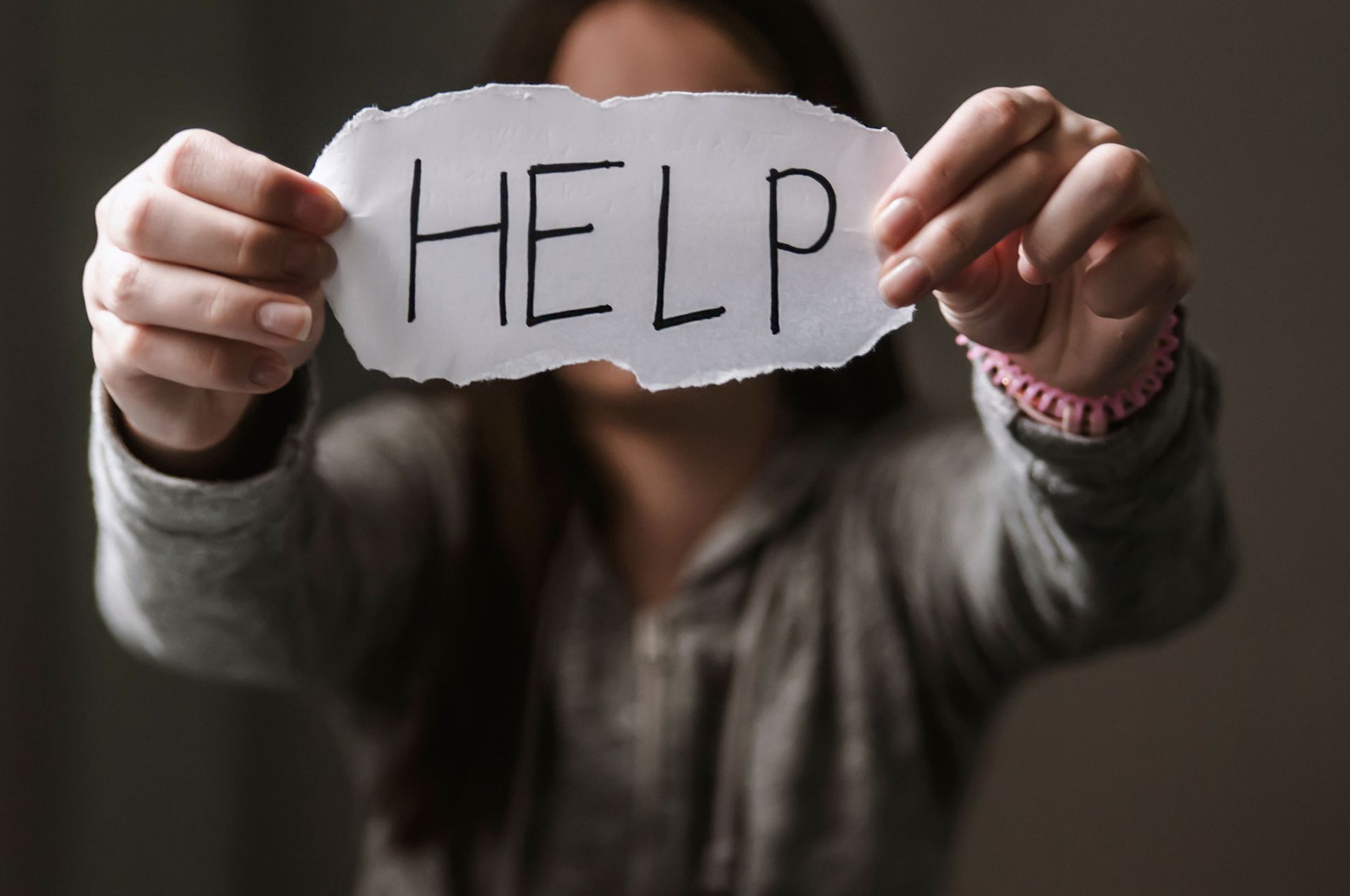
By Thrive VA
•
April 27, 2023
Domestic Violence and Sexual Assault Services An interview with Lawson Craighill Lawson Craighill works with kids and teens who've experienced domestic and or sexual violence. As one of Thrive's child counselors, Lawson decided to pursue her master's in clinical mental health counseling after working in a shelter in DC and seeing not only the need for, but the lack of accessible services. The fact that Thrive Virginia has built our domestic and sexual violence program around equality and accessibility was one of the things that drew her into the organization. Lawson admits that her role at Thrive Virginia can be intense at times, but feels lucky to do such incredible work. How does trauma impact developing brains? “Trauma is one of those things that kind of impacts the entire person emotionally, mentally, physically. As psychology and counseling have grown and evolved, we're really learning more about how it impacts the body and how it impacts a growing and developing brain and body.” Thrive Virginia does incredible work in our communities. One of the things that attracted Lawson to her role at Thrive Virginia is that they prioritize kids the same way they prioritize adults. There is a lot of support specifically from a domestic violence standpoint Lawson is a child counselor on the violence intervention side of things, providing counseling to kids who've experienced domestic or sexual violence. Thrive Virginia also has clinicians that work with adult survivors and a case manager there to support adult survivors. Prevention is key: Thrive Virginia also has clinicians that work with adult survivors and a case manager to support participants. While we work primarily with women, it is important to note that men do experience domestic and sexual violence. “At Thrive Virginia, we have a prevention side providing education and facilitating dialogue about the dynamics of domestic and sexual violence, how to work with survivors, how to be trauma informed. In school we educate on the importance of healthy relationships and LGBTQ+ support groups. So, there are many exciting and important things we do not only to support adults and kids who’ve experienced violence, but also work to prevent that violence in the first place.” Confidential support is imperative: Our confidential 24 hour emergency hotline for domestic violence support is 877-966-HELP This number is not only for people experiencing domestic or sexual violence but also survivors that may need support. If you are in our service area , someone from Thrive VIrginia is available to help depending on what you are experiencing at the time- whether it is safety planning or an exit strategy, “… anything that you need at that moment, we're here to help you. We can help you through this moment and then we can start the process for getting counseling or case management.” How much are you seeing social media tie into mental health issues with the kids that you're working with? Social media is everywhere. TikTok is the big thing right now, but there are always new platforms. Kids are getting phones and access to the internet and social media earlier and earlier, and as the internet grows, The content and ease of access to just a world of information grows. “It can be super confusing for younger kids who may be struggling and looking for information or just looking to make connections…we're starting to see how this inundation of content about mental illness or various diagnoses or kind of trauma dumping that exists a lot online. And with things like TikTok where you can just consume video after video, it does start to take a toll on the brain, and it does make it difficult to understand your own experience.” Is there an impact on the sleep cycle? “Absolutely. 100%. it's everything from the blue light of a device to the type of content you're watching and the way it stimulates your brain.Engaging with this stuff that could be high intensity is the opposite of what you wanna do, and it can take your brain a lot longer than you think to come back down to a place where a good night's sleep is gonna be a possibility.” Can you tell us a little bit about Adverse Childhood Experiences (ACE) scores? ACE it's a survey and you can go through and ask questions about all of these various things that someone may have experienced. So it can be anything from have your parents gotten divorced to, did you experience sexual abuse or repeated sexual abuse. “It is a pretty large range, but at the end, once you calculate those scores, we're able to see risk factors for health problems and social emotional problems. I think this goes back to how much we're learning about trauma and how we're learning how trauma not just impacts the mind, but impacts the body.” ACE scores represented one of the first times that counselors were able to see tangible evidence that experiencing trauma as a child can really spike your risk factors, not just for emotional issues in the future, but physical things like heart disease, stroke and similar health risks. How are you able to see kids while they are in school? Thrive Virginia partners with most of the schools in the area in our counties, and with that partnership, we're able to come into the schools and provide this therapeutic service. “I've worked in a variety of communities, in a variety of capacities, but no matter what, accessing mental healthcare can be tricky for whoever you are, whether it's finding a provider that works with your insurance or having insurance or having enough money to pay out of pocket if you don't have insurance. There are a lot of things that need to fall into place in order to access services.” Thrive removes so many of those barriers, especially for our kids. First and foremost, our participants are not paying for our counseling services. Transportation is sometimes an issue, so going to schools removes that barrier. How do I get care for my child or a loved one? Is there a qualification/vetting process? All of our information is on our website- ThriveVa.org the best way to get more information, the best way to get involved to start asking and receiving services is through our website or giving us a call. Again, there is a 24 hour confidential line and that's 877-966-HELP To donate to Thrive Virginia, please click here

April 26, 2023
$25 To Thrive Spring Fundraising Campaign Thrive Virginia is a place of action that is dedicated to supporting and uplifting communities using a whole family approach to help persons fighting poverty overcome barriers to success. In FY2022, Thrive Virginia provided 4,083 services to 993 individuals in 451 households. That included: 1,682 mental health counseling sessions 1,489 life skills coaching sessions 606 home visits 390 food distributions 171 college and career readiness sessions 63 adult financial literacy education classes and 1,155 students receiving Healthy Relationship classes. We need the community's help to ensure we can continue to provide these valuable services to our participants. Twice a year, Thrive Virginia asks Virginia to help support our ability to provide these services to our participants with a program called $25 to Thrive . We do it in the Spring and Fall. This is a great way for our community to help make it all possible. You can be a part of $25 to Thrive Virginia furthering our mission and help change lives by donating just $25 as a one time contribution or recurring by participating in our Spring Fundraising Campaign right now! Here is a great way to truly see what your donation provides to our community: A 30-minute credit management counseling session Essential needs/transportation for a family fleeing a domestic violence situation. Food for a family of 4 for a week. 2 cans of baby formula for mother and newborn. A week of summer camp for a child exposed to domestic violence. Provides soil for a raised garden bed to help feed a community Your contribution will go directly towards Thrive Virginia’s life-changing programs that support central Virginia’s most vulnerable individuals and families. Joining Thrive Virginia with our efforts will ensure that more families are able to not only survive but to thrive!
Thrive Virginia uses person-centered and collaborative services to empower those fighting poverty to achieve individualized prosperity and community connections.
Contact Info
Our NEW Address:
211 Rocketts Way
Suite 200
Henrico VA 23231
Phone:
804-362-6835
Domestic Violence
Hotline:
877.966.4357
© 2025
All Rights Reserved | Thrive Virginia | Privacy Policy | Quick Out Disclaimer
